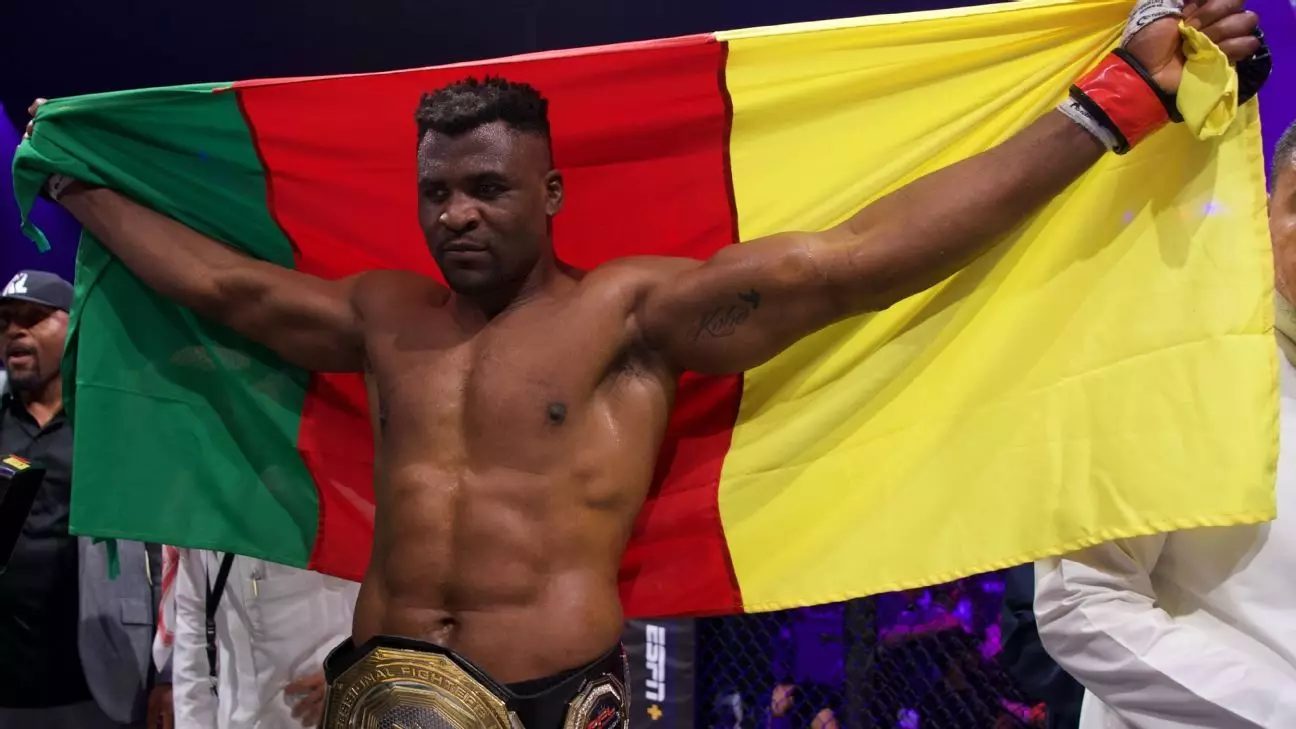Resilience and Responsibility: Francis Ngannou’s Heartfelt Response to Tragedy
It’s never easy when a public figure finds themselves at the heart of a tragic event. The ripple effects extend beyond the immediate circle, touching lives in profound ways. Recently, former UFC heavyweight champion Francis Ngannou found himself engulfed in such a situation in Cameroon, where he was reportedly involved in a fatal accident. This incident not only affected those directly involved but also highlighted the immense responsibilities that accompany fame and success. Ngannou’s journey from humble beginnings to global prominence adds layers to the narrative of accountability and personal responsibility.
In situations like these, it’s easy to forget that celebrities are human too, capable of feeling deep empathy and grief. Ngannou’s response to this tragedy was poignant, revealing his emotional depth. His words conveyed more than just a formal acknowledgment; they were an earnest attempt to connect with the grieving family. “From the very beginning, I have been by the family’s side,” he shared, offering a glimpse into his understanding of their pain. This statement serves as a reminder that beneath the athlete’s exterior lies a vulnerable human being who experiences loss and heartache.
Key Takeaways
- Francis Ngannou has shown profound empathy in response to a tragic incident in Cameroon.
- His journey from humble beginnings to fame underscores the responsibilities of public figures.
- Ngannou’s ability to express condolences highlights emotional intelligence and maturity.
Grief and Empathy in the Public Eye
When Francis Ngannou faced this heartbreaking incident, his response was rooted in empathy and understanding. His statement wasn’t just about fulfilling an obligation; it was about making a genuine connection with those affected by the tragedy. By expressing his commitment to support the grieving family, Ngannou demonstrated an admirable level of emotional intelligence. Such gestures are often scrutinized under the harsh glare of public attention, but they also remind us of the shared human experience that connects us all.
Ngannou’s acknowledgment of his emotional connection to the tragedy stands out as particularly significant. By expressing that he carries the family’s pain with him, he breaks away from the often isolated realm of celebrity life. Instead, he chooses to embrace a shared experience that transcends individual fame or success. This kind of vulnerability is rare, especially in today’s fast-paced world where emotional detachment seems more common among public figures.
A Career of Contrasts
The journey of Francis Ngannou from a small village in Cameroon to becoming a world-renowned fighter is nothing short of remarkable. However, his career has been marked by contrasts – moments of triumph intertwined with personal and professional setbacks. After shifting his focus from UFC to boxing and facing formidable opponents like Tyson Fury and Anthony Joshua, he encountered unexpected personal grief with the loss of his infant son, Kobe. These contrasting experiences cast shadows over his narrative of success, bringing themes of loss and resilience into sharp relief.
This dichotomy highlights the fragile nature of success for Ngannou. One moment he’s rising as a star in mixed martial arts; the next, he’s grappling with profound personal tragedy. Such dual experiences inevitably redefine how one perceives their obligations to others. Ngannou’s ability to express sincere condolences and offer support amid these challenges signifies maturity beyond what is often expected from athletes who are typically seen as stoic or detached.

The Road Ahead: Challenges of Healing and Growth
As Francis Ngannou navigates through this challenging period, he faces both public scrutiny and personal healing journeys ahead. How he chooses to engage with these processes will be crucial not only for his public image but also for his own recovery. Such difficult times test an individual’s resilience far beyond physical strength, revealing character and determination at their core.
Ngannou’s emphasis on accountability and growth underscores that personal development often emerges from adversity. The tragic event holds potential as a catalyst for healing—not just for him but also for the family seeking closure amid their grief. The true measure of an athlete extends beyond physical prowess; it begins with empathy and heart. Even in dark moments like these, there lies potential for reconciliation and light along life’s complex path.
Final Thoughts
The story of Francis Ngannou is one marked by incredible highs and heartrending lows—a testament to both resilience and responsibility on multiple fronts. His heartfelt response to tragedy serves as a reminder that even those who appear strong can be deeply affected by life’s events—an important lesson worth recognizing amidst fame’s allurements or pressures alike.
This tale isn’t solely about an athlete’s journey through success or failure; rather it’s about navigating humanity itself within complex circumstances intertwined throughout everyday life experiences we all share together universally speaking across cultures worldwide today more than ever before perhaps given society’s current state globally now ongoing rapidly evolving constantly changing each day anew seemingly always without end yet here we stand still together somehow through it all resiliently responsible hopefully healing growing learning adapting forevermore ultimately finding ourselves better off because thereof moving forward towards brighter futures ahead nevertheless no matter what happens therein thereafter always remaining hopeful optimistic ready willing able prepared face whatever challenges may come way next time around till then stay safe take care everyone everywhere you are thank you reading appreciate support means world us truly sincerely yours faithfully always forevermore signing off until next time goodbye farewell adieu see soon again soon enough long live cookery cuisine culinary arts cheers amen alleluia hallelujah bravo encore vive la vie bon appétit enjoy meal friends family loved ones acquaintances strangers alike peace love happiness joy abundance prosperity good health wealth wisdom kindness compassion understanding tolerance patience humility grace mercy forgiveness generosity gratitude blessings upon all mankind womankind humankind beings creatures great small alike universe whole entirety entirety thereof beyond beyond infinity eternity amen selah shalom salaam namaste om tat sat so mote blessed be blessed indeed amen amen amen
Francis Ngannou
Resilience
Responsibility
Empathy


Leave a Reply